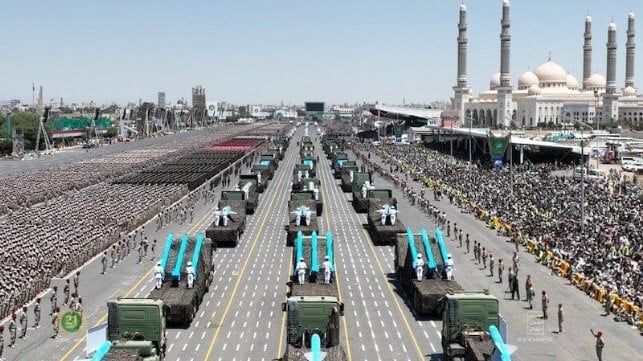British and American Governments Warn of Terrorist Threat in UAE

On August 8, the British Foreign Office warned British citizens that “terrorists are very likely to try to carry out attacks in the United Arab Emirates.”
Foreign ministries normally issue explicit threats of terrorist threats in other countries only after fierce internal debates. In this instance, Edward Hobart, the British Ambassador in Abu Dhabi is likely to have been summoned to hear a stern protest from the Emirati government, who will suggest that such a warning is alarmist and unnecessary. However, on the same day the United States also issued a similar but more specific warning, advising that “the U.S. Mission is aware of information indicating threats toward the Jewish and Israeli communities in the UAE. The Mission urges U.S. citizens to avoid locations in the UAE associated with the Jewish and Israeli communities, including places of worship.”
Neither the British or the American warning gave any indication as to who might be posing such a threat.
Iran could be considered a candidate, but has made efforts to keep the peace with the UAE. Moreover, state organizations in Iran which might be behind such an attack are currently in a state of disarray. Many senior decision-making IRGC and security leaders who would coordinate such attacks were casualties of the 12-Day War, and their posts are still unfilled.
A more likely candidate to be instigating a terrorist campaign is the Houthi leadership in Yemen. It has given clear indications that it is seeking to widen its war against Israeli interests, and specifically against commercial organizations which have business ties with Israel. In the Friday protests in Seventy Square in Sana’a every week, which attract hundreds of thousands of Yemenis, demonstrators hold placards advertising themselves as the most fervent supporters of Gaza’s Palestinians, and abuse countries of the Gulf for not taking a similar, hard line. This is not a surprising adversarial position, given that most GCC countries have supported the internationally recognized government in its long civil war against the Houthis.
Reinforcing their motivation for taking action, the Houthi alliance is under stress and has in recent weeks suffered a dissension and a number of internal defections. Using the dictator’s favorite trick, the Houthis know that by targeting an external enemy they can harness popular sentiment, and by so doing secure the home base and their grip on power.
Internal security forces in the Gulf are extremely efficient and effective, so they are likely to interdict any planned attack, and they will respond aggressively. However, the Houthis are also skilled underground operatives, and can call on large numbers of fellow expatriates and sympathizers to help them mount attacks.
Of the two warnings, the general warning from the British is probably the most useful. Most expatriates residing in the UAE will be unaware of the commercial connections of global enterprises active both in the UAE and Israel. But such connections, which could embrace shipping, logistics and cruise companies, airlines and retail chains, will not have escaped the attention of a Houthi planning cell seeking targets for terrorist attacks.
